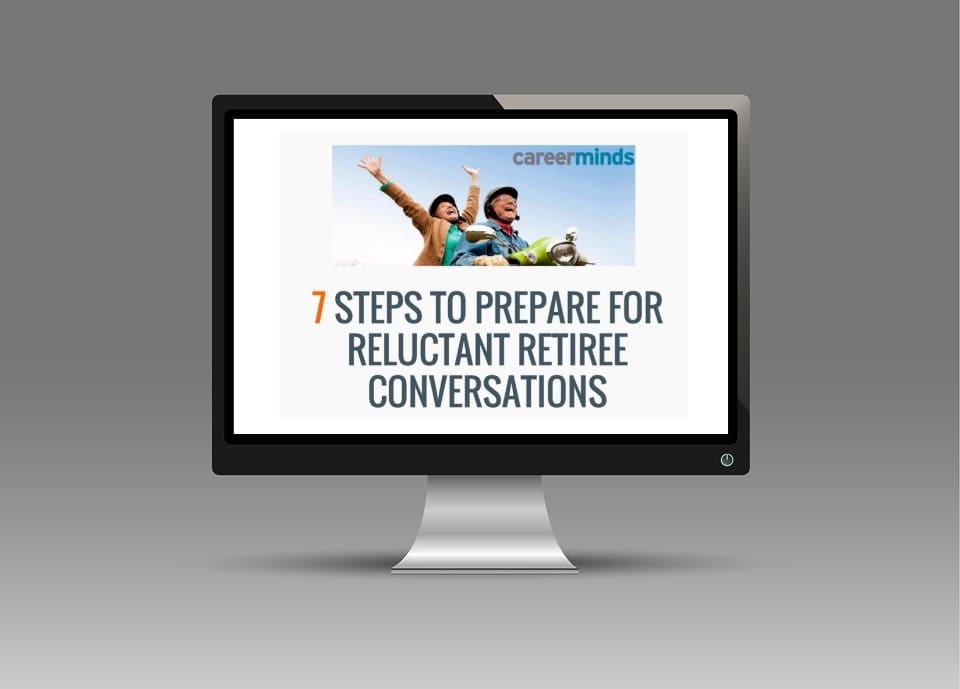5 Major Concerns HR Should Consider For Baby Boomer Retirees
February 17, 2017 by Raymond Lee
With more than 78 million Baby Boomers retirees exiting the workforce in the next 20 years, organizations are realizing they need a new game plan to facilitate this major wave of transitions. This Silver Tsunami just made strategy around succession planning, managing communication with potential retirees, and regulating the flow of exiting workers much more challenging.
Discussing retirement with Baby Boomers is challenging, especially when they may be reluctant to retire. Potential baby boomer retirees are facing a brand new phase in their lives and contemplating the many challenges that coincide with a major transition like retirement. While stress around financial planning is common, there are many other factors to consider in retirement planning and these employees are looking for support beyond their 401K program.
Are you prepared to navigate these complicated conversations? We’ve broken down the major concerns you should be ready to address with Baby Boomers who are nearing their retirement.
- Making money last through retirement
Financial planning might seem like the most obvious source of stress for potential retirees, and one that you’ve already addressed with your organization’s 401K plan, but retirees are often still unsure of how to make their savings last through retirement. Only 13 percent of baby boomers believe they will be able to retire and maintain a comfortable lifestyle. In order to make money last through retirement, setting a budget early and adhering to it is crucial. Living beyond one’s means (conspicuous consumption) and buying things just for the sake of buying things (competitive acquisition) are two behaviors that must be avoided.
- Maintaining health (and insurance!)
Personal health and longevity are definitely on the minds of retirees, which makes maintaining health insurance a major concern. Even though people are living longer than ever, health related illnesses, suicide, and divorce rates are higher now, and Baby boomers retirees are in worse physical shape than previous generations of retirees. This paired with the likelihood of developing health complications later in life surely amplifies concerns over health care.
- Taking care of family
Beyond taking care of themselves, most baby boomer retirees are also worried about taking care of other family members. This not only causes financial strain, but even emotional or physical strain depending on the level of care needed. A large number have spouses to consider, but 15 percent of Baby Boomers are financially supporting both a parent and an adult child at the same time. Obligations to support or care for other family members could impact financial plans for retirement or even alter bigger plans post-workforce life. Research suggests retirees aren’t moving away from home anymore, with only 1.6 percent of retirees moving across state lines in recent years.
- Sense of purpose
After leaving their jobs, many baby boomer retirees struggle without the long-term goals and sense of accomplishment provided by a workplace. They want their days to feel meaningful. Some find it easiest to transition into a part-time job, and with 55+ jobs growing at four times the overall rate of job growth, this is a tangible option for many. Because of low savings and poor economic conditions, two thirds of baby boomers plan to work past 65, and maybe not retire at all. Trends like this may be cause for a recent surge in phased retirement offerings, which allow employees to gradually reduce their workload and slowly ease into full-time retirement over a longer period of time. While 55 percent of employees age 55+ are interested in phased retirement, it can also be a more attractive option for employees who may be reluctant to retire.
- Filling leisure time
Research shows that social interaction is the thing baby boomer retirees miss most after leaving their full-time job. While filling free time and socializing may seem like the opposite of a concern, it’s something that does require planning and commitment, especially if a retiree isn’t used to having much free time. In order to find fulfilment in leisure time, retirees need to put thought into what kind of hobbies they want to take up, places they want to travel, or clubs and organizations they’d like to join. These things will also require active participation and follow-through, an important commitment as the majority of time in retirement is focused on leisure and social activities.
While being prepared to discuss these topics with baby boomer retirees will keep you ahead of the curve, you’ll also need to start planning logistically as well. We’ve created a simple checklist of items to consider when putting together a plan of action for a wave of “mass retirement.” Download our 7 Steps to Prepare for Reluctant Retiree Conversations to get started.
More from Careerminds
In need of outplacement assistance?
At Careerminds, we care about people first. That’s why we offer personalized talent management solutions for every level at lower costs, globally.




